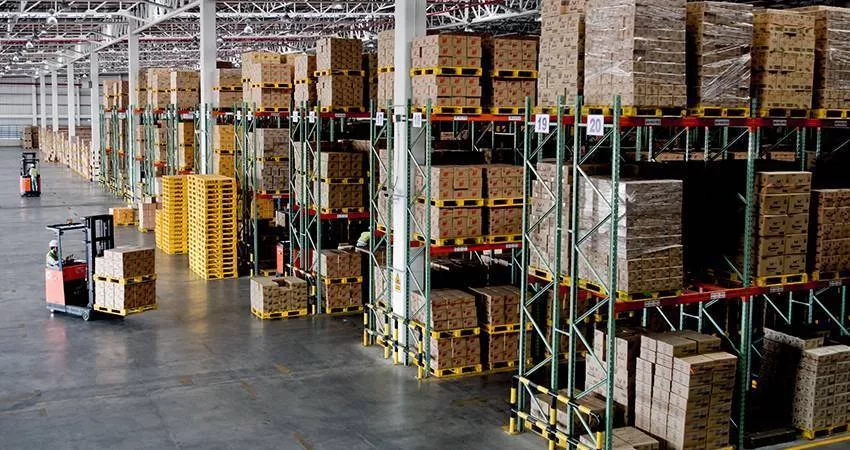The neon mopeds still dart through midnight streets, their cargoes of groceries and gadgets tracing ephemeral arcs across the urban landscape. But behind this façade of seamless convenience, a quiet metamorphosis is underway in the unmarked warehouses powering our on-demand economy. As 2024 unfolds, the dark store experiment faces its most consequential test – one that will determine whether it evolves into sustainable infrastructure or remains a cautionary tale of overambitious disruption.
From Berlin to Brooklyn, the transformation manifests in subtle but significant ways. The once-ubiquitous quick-commerce logos are receding from cityscapes, replaced by a new generation of adaptive fulfillment spaces. These hybrids oscillate between algorithmic precision and human-centric service with the fluidity of a well-rehearsed orchestra – serving digital orders at dawn and welcoming neighborhood shoppers by dusk.
The Reckoning
The warning signs emerged years earlier. The dramatic contraction of JOKR’s operations – from a $1.2 billion valuation to a strategic retreat – served as an early indicator of the sector’s volatility. Today, as industry leaders consolidate through acquisitions while simultaneously withdrawing from marginal markets, we’re witnessing the natural maturation of a once-frenzied gold rush.
The economic realities were always daunting. Picture a compact warehouse humming with activity: dozens of workers and riders mobilized to fulfill countless small-basket orders. While venture capital initially obscured these inefficiencies, the current financial climate has brought them into sharp relief.
Urban Tensions and Evolving Regulations
The societal impact is coming into focus. In Amsterdam’s historic districts, residents have raised thoughtful concerns about nocturnal noise and traffic patterns. Parisian policymakers have responded with nuanced zoning adjustments, reclassifying these facilities to better align with community needs.
New York’s deliberation over residential dark store restrictions encapsulates the central dilemma: our collective appetite for convenience versus its tangible urban consequences. The emerging compromise appears to be a strategic relocation – maintaining accessibility while minimizing residential disruption through intelligent urban planning.
The Automation Imperative
Modern fulfillment centers tell a story of technological progress. Where human pickers once navigated crowded aisles, sophisticated automation systems now operate with balletic precision. Kiwibot’s Miami pilot represents one vision of the future – a highly optimized, lights-out operation pushing the boundaries of efficiency.
This transition carries profound implications for the workforce. In Barcelona and other cities where quick-commerce jobs provided valuable economic opportunities, labor advocates are engaging in critical dialogues about reskilling and transition pathways. The challenge lies in balancing operational efficiency with social responsibility.
Toward Sustainable Models
By 2025, the industry landscape will likely feature:
- Adaptive retail spaces that serve multiple purposes throughout the day
- Strategic partnerships between quick-commerce providers and traditional retailers
- Greener last-mile solutions that address environmental concerns
The ultimate irony may be this: the future of instant delivery could involve slightly longer wait times – a small concession for a more sustainable, equitable system. The dark store revolution isn’t ending; it’s entering a new phase of responsible innovation.
The next time you place an instant delivery order, consider the complex ecosystem required to fulfill that simple tap on your screen. Behind every whooshing moped lies an intricate dance of technology, urban policy, and human adaptation – all reshaping commerce in real time.
Sources:
- Boston Consulting Group (2023). Automation in Last-Mile Logistics
- Financial Times (March 2024) – Getir Exits Italy and Spain in Profitability Push
- McKinsey (Q1 2024) – Quick Commerce: Path to Profitability
- The Verge (April 2024) – Kiwibot’s Robot-Only Dark Stores
- Crain’s New York (February 2024) – NYC’s Proposed Dark Store Ban
Important Disclaimer: The content of this article is provided for informational and educational purposes only. It reflects the author’s opinion based on information available at the time of publication, which may become outdated. This content does not constitute personalized investment advice, a recommendation to buy or sell, and does not guarantee future performance. Markets carry a risk of capital loss. The investor is solely responsible for their decisions and should consult an independent professional advisor before any transaction. The publisher disclaims all liability for decisions made based on this information.

